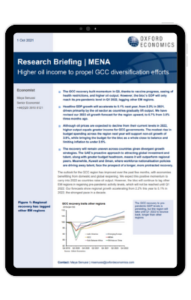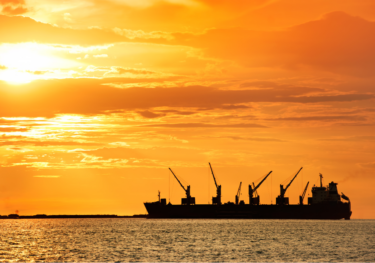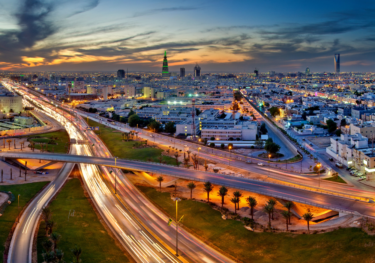MENA | Higher oil income to propel GCC diversification efforts

The GCC recovery built momentum in Q3, thanks to vaccine progress, easing of health restrictions, and higher oil output. However, the bloc’s GDP will only
reach its pre-pandemic level in Q1 2022, lagging other EM regions.
What you will learn:
- Although footfall is the most visible and easy to measure sign of success, other benefits that are harder to visualize will accrue over a number of years. For instance, infrastructure built for the Expo will continue to benefit the economy, especially if the site can be successfully regenerated.
- A successful Expo will also help market Dubai as a place to live, work, and invest.
- With new Covid-19 cases edging down and vaccination rates rising, Qatar will ease remaining public health restrictions on October 3 under the final phase of its plan, which should support domestic activity over the rest of the year.
Tags:
Related Services

Post
Eurozone: Little sign of harm from the Red Sea disruptions
The impact of Red Sea shipping disruption on the eurozone economy continues to be limited, in line with our baseline view. Our new Eurozone Supply Stress Indicator suggests that supply pressures have returned to normal following a period of easing in 2023.
Find Out More
Post
GCC: Key themes shaping city economies in the near term
For Gulf cities, the near-term outlook will be tied not only to the global macroeconomic backdrop, but also the progress of the diverse visions and strategies in the region. With the aim to diversify their economies and reduce the dependence on oil, Gulf states continue to invest in the non-oil economy and implement various reforms. That said, oil revenues remain key to funding diversification efforts.
Find Out More